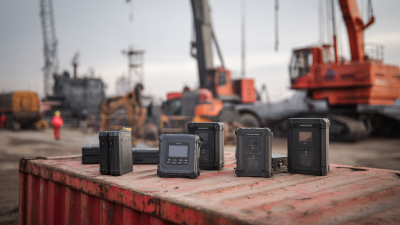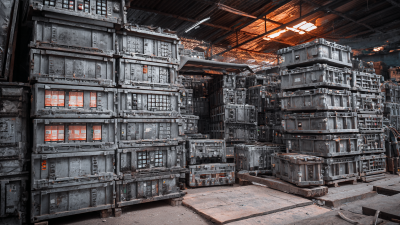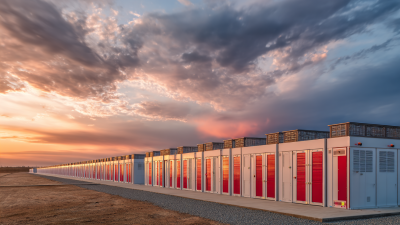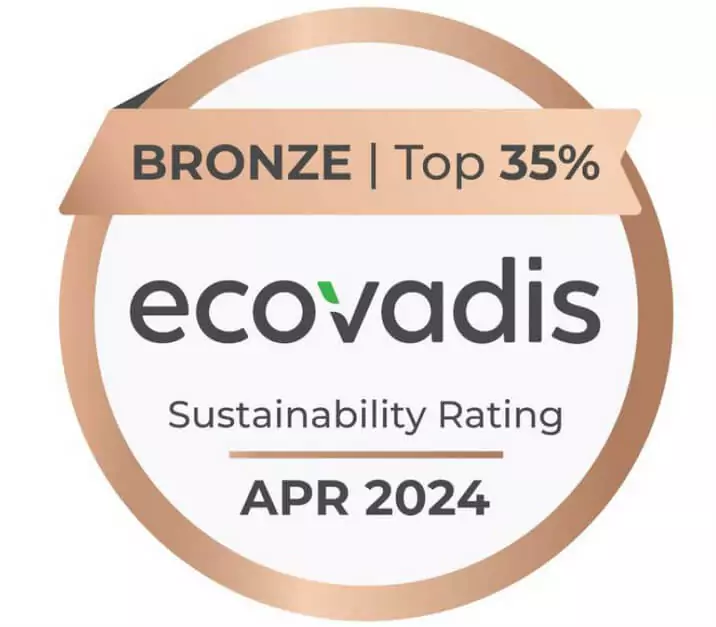The Future of Energy: Exploring the Innovations Behind Lithium Batteries
As the world transitions towards sustainable energy solutions, lithium batteries have emerged as a cornerstone in this evolution, powering everything from electric vehicles to renewable energy storage systems. According to a report by the International Energy Agency (IEA), the demand for lithium-ion batteries is expected to surge, reaching nearly 3,000 GWh by 2030, a significant increase compared to just 200 GWh in 2020. This surge is driven by the increased adoption of electric vehicles and the need for effective grid storage solutions, which are crucial for managing intermittent renewable sources like solar and wind. Moreover, technological innovations in lithium battery design and manufacturing are set to improve efficiency, reduce costs, and enhance sustainability. As we explore the future of energy through the lens of lithium batteries, it becomes evident that these innovations will not only shape the energy landscape but also redefine how we harness and use energy in the coming decades.
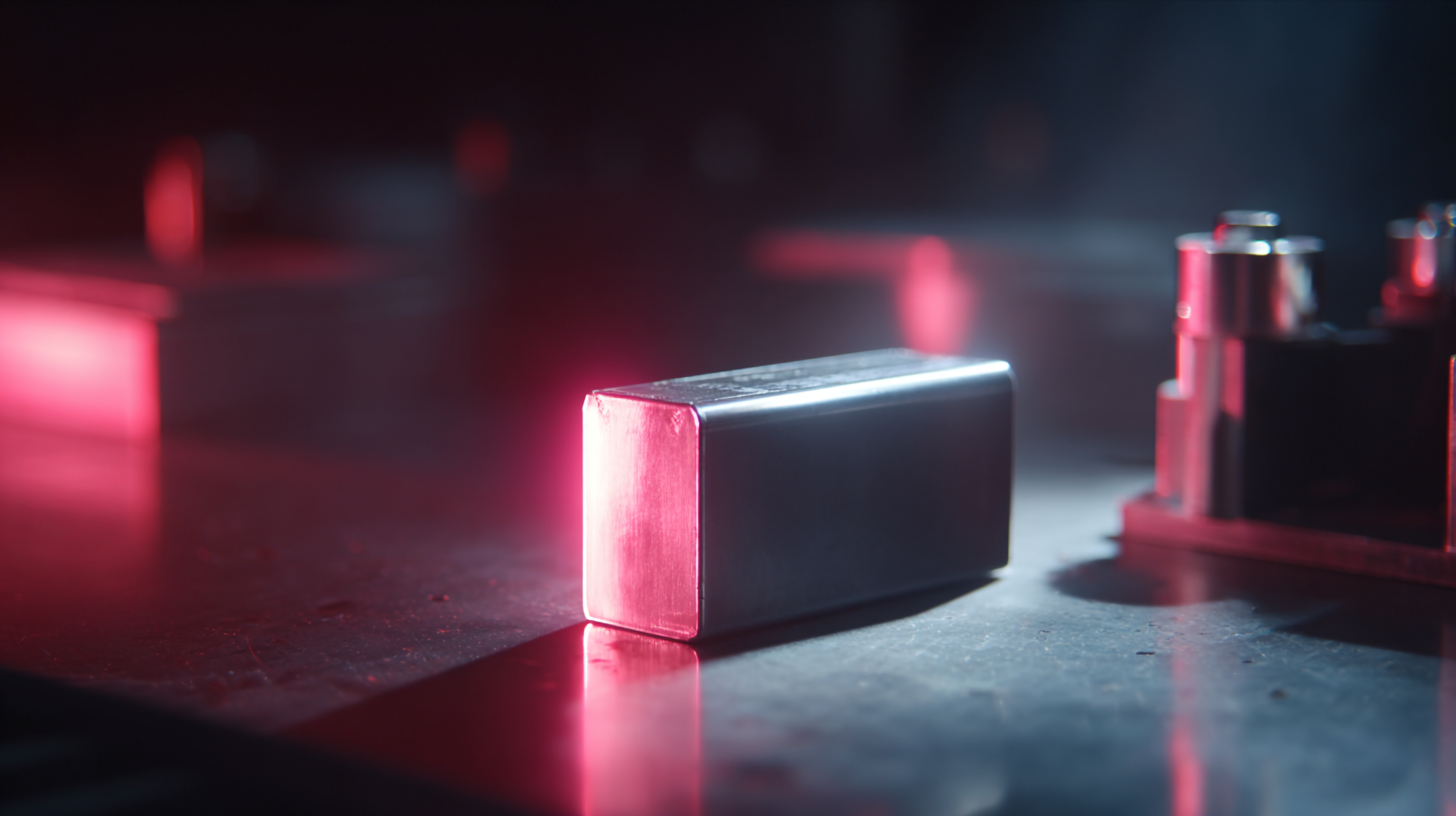
Lithium Battery Technology: Advancements Driving Energy Efficiency
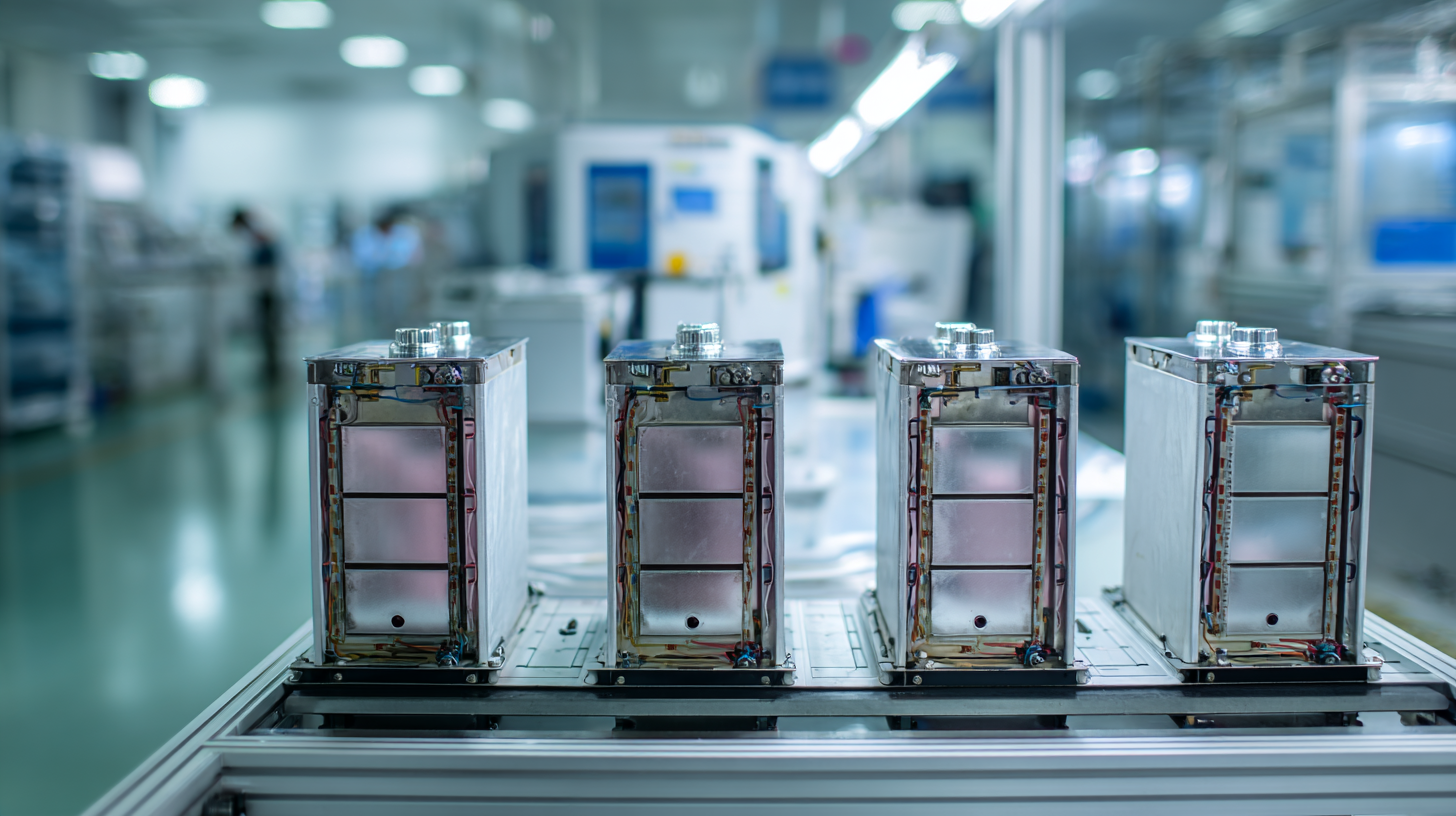 Lithium battery technology has been at the forefront of energy efficiency advancements, revolutionizing how we store and utilize energy. The continuous improvements in lithium-ion batteries are primarily driven by research in materials science and innovative engineering. New anode and cathode materials, such as silicon and solid electrolytes, significantly enhance energy density and battery life. These advancements not only increase the performance of electric vehicles but also pave the way for more efficient renewable energy storage solutions, essential for integrating solar and wind power into our energy grids.
Lithium battery technology has been at the forefront of energy efficiency advancements, revolutionizing how we store and utilize energy. The continuous improvements in lithium-ion batteries are primarily driven by research in materials science and innovative engineering. New anode and cathode materials, such as silicon and solid electrolytes, significantly enhance energy density and battery life. These advancements not only increase the performance of electric vehicles but also pave the way for more efficient renewable energy storage solutions, essential for integrating solar and wind power into our energy grids.
Tip: When considering lithium batteries for your devices or systems, look for options that utilize the latest advancements in technology to maximize performance and lifespan. Additionally, pay attention to the recycling programs offered by manufacturers to ensure sustainable use of lithium resources.
Moreover, the push for energy efficiency is also evident in the development of smart battery management systems that optimize charging cycles and prolong battery health. These systems help maintain the balance between performance and safety, enabling users to rely on their devices without the constant concern of premature battery failure. The integration of artificial intelligence in battery management further solidifies our path towards a future driven by highly efficient energy storage solutions.
Tip: Regularly check for software updates on devices utilizing lithium batteries; these updates can often include improvements to battery management systems, thereby enhancing overall performance.
Next-Gen Materials: Enhancing Lithium Battery Performance and Longevity
The next generation of lithium batteries is set to revolutionize energy storage and electric mobility, driven by innovative materials and advanced technologies. Recent breakthroughs in battery design, such as those from POSTECH and KIER, focus on enhancing performance and longevity. These advancements include the use of silicon anodes and carbon nanocoatings, which contribute to faster charging times and an extended cycle life. For instance, studies reveal that new materials can increase lithium-ion battery life to over 1500 cycles with minimal capacity degradation.
As the industry seeks to optimize battery efficiency, AI and quantum technologies are playing pivotal roles. AI applications are streamlining battery production processes, enhancing charging efficiency, and improving integration with energy grids. Quantum innovations accelerate the discovery of new materials, potentially leading to even more resilient and high-capacity storage solutions. Graphene batteries, in particular, stand out for their capacity to charge rapidly and offer high energy densities, making them a promising option for electric vehicles.
Tip: To maximize the lifespan of your lithium batteries, consider maintaining them at optimal charge levels (around 20%-80%) and storing them in a cool environment to minimize thermal stress. Regularly updating battery management systems can also help in monitoring and extending battery life effectively.
Sustainable Production Methods for Lithium Batteries in the Green Energy Era
Sustainable production methods for lithium batteries have gained significant attention in the green energy era, particularly as the global community strives to meet ambitious decarbonization targets. The transition to renewable energy requires not only advanced technology but also sustainable practices in sourcing critical materials. Recent reports indicate that the renewable energy industry is grappling with substantial supply risks, particularly regarding minerals like lithium, manganese, cobalt, and nickel. As the demand for lithium-ion batteries surges—projected to reach 1.5 billion units globally by 2030—ensuring a sustainable supply chain is crucial for the industry's future.
To address these challenges, innovative solutions such as deep eutectic solvents (DESs) are being explored to enhance the efficiency of lithium battery production. Research highlights that implementing DESs could significantly improve energy storage capabilities while also minimizing the environmental footprint associated with traditional battery manufacturing processes. Furthermore, recycling initiatives for lithium-ion batteries are becoming increasingly vital. A life cycle comparison shows that recycling not only supplements critical material needs but also offers a more sustainable alternative to mining. By embracing such holistic approaches, the lithium battery industry can pave the way for a more sustainable future, aligning with the global shift towards a greener economy.
Smart Integration: Lithium Batteries in Renewable Energy Systems
The integration of lithium batteries into renewable energy systems is set to revolutionize the way we harness and store energy. With the global market for energy storage systems (ESS) projected to reach approximately $14.7 billion in 2024 and expand to $55.1 billion by 2032, the role of lithium batteries in enhancing energy efficiency and reliability cannot be overstated. These batteries not only provide crucial support for intermittent energy sources like solar and wind but also bring intelligent energy management solutions that maximize the utility of stored energy.
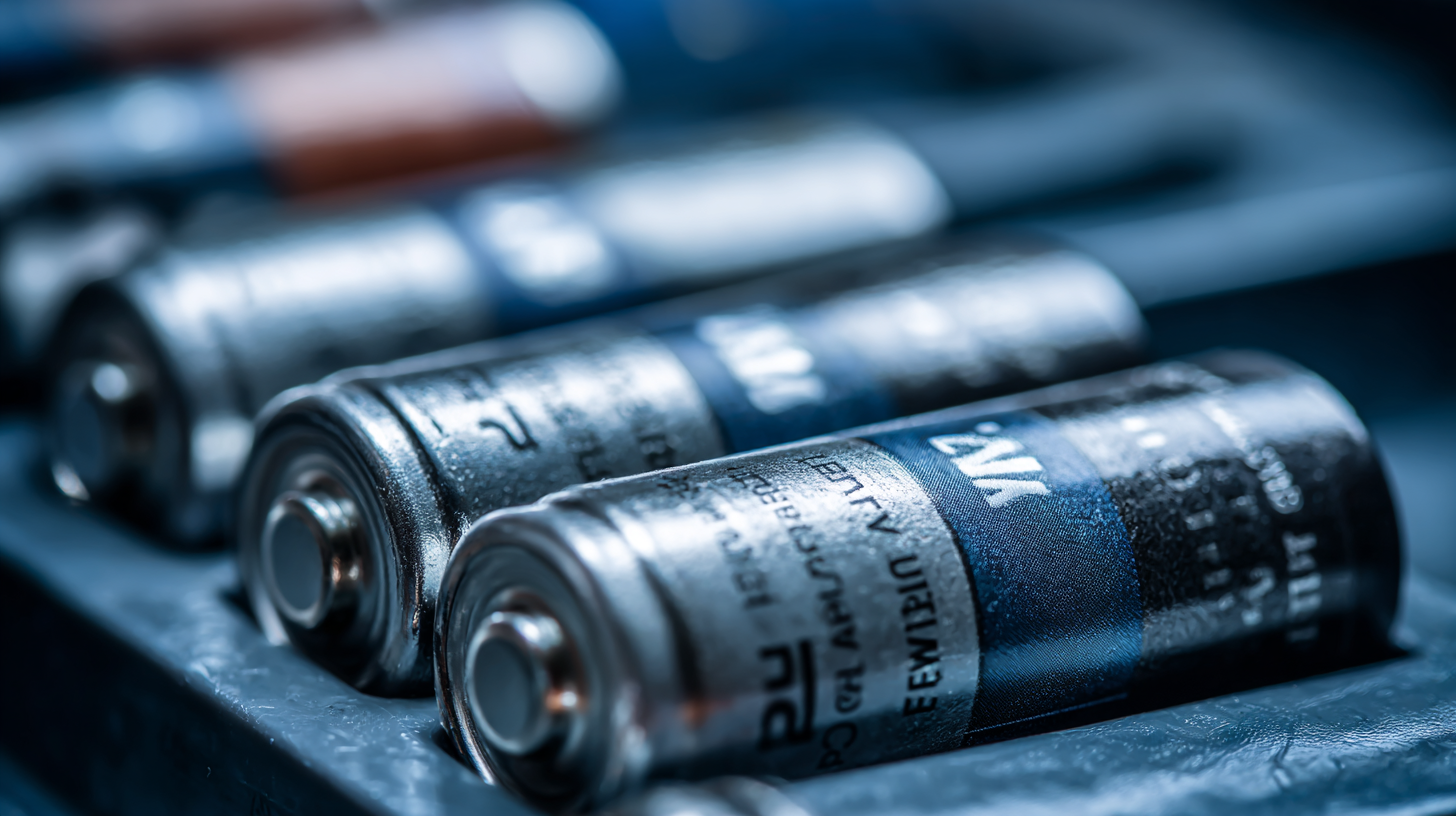
In this evolving landscape, the merger of artificial intelligence (AI) with lithium battery technology represents a significant leap forward. Companies are increasingly adopting AI to optimize battery performance and energy distribution, driving innovation in thermal management modules for hybrid electric vehicles (HEVs) and ensuring efficient energy use across various applications. As the renewable energy sector shifts towards smarter, software-defined solutions, the adoption of advanced lithium battery systems will play a pivotal role in achieving sustainable energy goals. This dynamic synergy promises to enhance not just energy storage capabilities, but also the overall efficiency of renewable energy systems globally.
The Role of AI and Machine Learning in Lithium Battery Innovation
The integration of artificial intelligence (AI) and machine learning (ML) into the development of lithium batteries is driving unprecedented innovation in energy storage technology. By leveraging algorithms that analyze vast datasets, researchers can enhance the performance and lifespan of batteries. AI can optimize charging cycles and identify the most suitable materials for battery production, leading to increased efficiency and reduced costs. Furthermore, machine learning models can predict battery behavior under various conditions, allowing manufacturers to design safer and more reliable energy solutions.
AI not only accelerates the research and development process but also enables the production of smart batteries. These batteries can collect and analyze usage data in real time, adapting to user behaviors to improve energy management. With machine learning, manufacturers can also forecast maintenance needs, minimizing the risk of failures and extending the operational life of battery systems. As a result, the role of AI and ML in lithium battery innovation is crucial, ensuring that the future of energy storage is not only smarter but also more sustainable.
The Future of Energy: Lithium Battery Innovations
This chart illustrates the advancements in energy density of lithium batteries over the years, highlighting the impact of AI and machine learning on innovation in the field. The data shows a steady increase in energy density measured in Wh/kg, reflecting improvements in battery technology.








